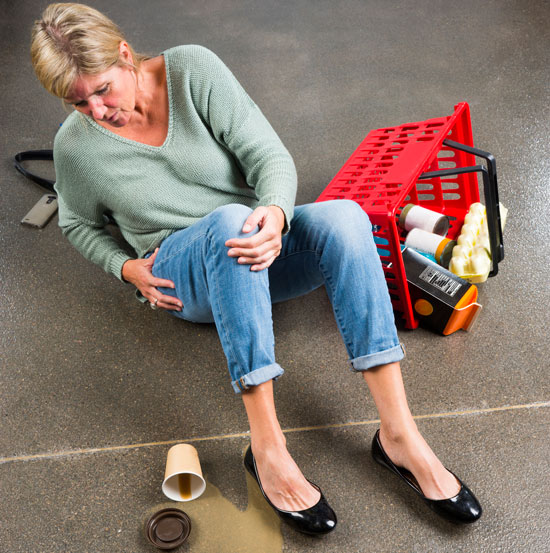Expert witnesses in the premises-liability trial
The type of experts you may need, and the best way to use them at trial
There are multiple experts that one can use in a premises-liability trial, as in any trial. Choosing which experts to use is largely a function of the facts of your case. In the big picture, the experts address liability, causation and damages. Some of the more specific areas to be addressed are:
- Trip and Fall Liability Experts
- Biomechanics
- Human Factors
- Lighting
- Accident Reconstruction
- Building and Safety Code
- Security
- Supermarket
- Playground
- Tree Expert (Arborist)
- Elevator and Escalator
- Construction
- Mold
- Doctors and Life Care Planners
How to take your liability expert on direct
Keep it simple; always ask yourself, “what do I need from this expert witness?” For a liability expert you may need a code violation, or any other reason to establish negligence or notice. For a medical expert your main focus is getting the amounts of past and/or future medical bills into evidence.
- Qualify the experts
Ask the expert what they do for living. What is their educational background and work experience in the field. How long have they been working in the field. Ask them if they were hired as an expert in this case, and what they were hired to do.
- What documents did they review in forming their opinions?
This is critical for helping the jury understand what was reviewed in order to form the opinion to be given. It is also useful to help identify a document that you may later want to move into evidence for the jury to see. For example, a medical bill or photograph, etc.
Practice pointer: Always ask your opposing counsel to stipulate to admit things that you want in evidence. It makes the trial and the examination go more smoothly and quickly. The defense will generally want some item admitted, so you can horse trade on these items. Ask for stipulations in advance; if you ask a month before trial, the defense will almost always agree. If you ask the day of trial, they will tell you to kick rocks.
Practice pointer: Be mindful of the new 2017 rule, section 2024.415 of the Code of Civil Procedure, which requires documents to be exchanged 3 days before the experts’ depositions, or they may be excluded under this rule at trial.
What are your opinions and the basis for those opinions?
The examination of your expert is ultimately getting to this critical point, the previous information is elicited to lay the foundation for the opinion. If you start off asking the doctor or liability expert what their opinions are first, a seasoned defense lawyer will object and the objection will likely be sustained. You will then have to start from the top and lay the foundation.
Practice tip: You may want to apologize and say you were just trying to get to the point without wasting the jury’s time, but let me slow down and cover this first.
Have your expert use demonstrative evidence during his examination. For liability experts, you may want to have them set up cones and caution tape so that the jury can see with their own eyes what the expert is talking about. Also, you can have your expert step down from the witness seat and draw on the board or paper. This visual gives the jury the sense that they are being taught from a professional whatever the issue is they are testifying about. It also keeps the jury focused and engaged.
Make your points and always keep things short and sweet. If you spend 15 minutes going through an expert’s qualifications, the jury will be asleep by the time you actually get to the point of why they are testifying.
Also, ask your expert if the opinions he has given are to the legal standard of preponderance of evidence or more likely to be true than not true. Failure to clarify this important point could be fatal to your case if the opinion given is ultimately excluded.
How to make the defense expert your expert
In most any case, you can get the defense expert to give concessions and agree with many parts of your case. It is generally a good idea to start with areas where the defense expert agrees with your expert. Even in the most contentious case, the defense expert will agree with your expert on many things. Hopefully, you have deposed the defense expert and will already know the areas in which he will agree with your expert. Better yet, the deposition will be videotaped and you will have video clips ready to address these areas, which is discussed further below. In any event, you can always use whatever the witness just testified to on direct examination to find points of agreement.
For example, you can start with, “You agree the incident occurred at the Ralph’s store on Artesia Blvd. in Redondo Beach? You agree that Plaintiff Johnson fractured her femur in the incident? You agree that Plaintiff Johnson’s femur was fractured as a result of her body weight landing on her leg? So the fall caused the fractured femur, correct?”
- You can’t win your case through the defense expert. Get some concessions and move on.
- Do not argue with the defense expert; it only focuses the jury’s attention on an issue that you are likely in disagreement upon with the expert.
- Do not get angry with the defense expert about offering a nonsensical opinion. If you get angry the jury is likely to dislike you and think you are “beating up” on the expert. They can feel sorry for the expert. Hopefully, the expert is the one who gets angry – causing the jury to dislike them. As the saying goes, “Do not argue with a crazy person, because anyone who is watching (the jury), cannot tell which one of you is crazy.”
Use videotaped depositions of experts
Every expert deposition should be videotaped. The video clips are some of the most powerful evidence you can use at trial. It is a dramatic part of the trial when the court turns down the lights so that the video can be seen, and everyone’s focus is the big screen. Again, this starts in taking the deposition to get useful and concise clips to be played at trial. You can play video clips at many phases of the trial.
Opening statement
Often you can play video clips in your opening. Some judges will not allow clips to be played in opening statement. You can often play important clips in your opening power point. If you stipulate with defense before the trial the video clip of the fall is admitted, you can likely play it in your opening. If you cannot play them here, you can tell the jury that you will be showing them video evidence in a few minutes after your opening is complete.
Your case-in-chief
Even if you cannot play the video clip in opening, you can start playing clips the first thing after your opening from any expert witness. This is a great place to play clips of defense experts agreeing with certain things in your case. They may agree your client fell, they may agree the floor was wet, they may agree your client broke their leg when they fell. Getting these opinions in early from defense experts helps bolster your own experts who will be testifying next. It often appears there is little disagreement between experts if done properly.
You can also play your expert’s entire video in lieu of calling the expert at trial. This can save considerable costs as well as alleviate scheduling issues. The defense will probably not have much cross-examination of our expert on video, compared to what they would do in trial. Proper notice must be given to play the video in trial, be mindful of C.C.P. requirements.
Cross-examination
Impeaching experts with something they said during a video deposition at trial can be devastating to the defense. You will have to have clips pre-made to address certain anticipated areas. Also, a quick-acting video technician at trial can be worth his or her weight in gold.
Direct examination
You can play video clips of the defense expert’s deposition while your expert is on the stand, and ask your expert to comment on what was said. This is a great way to get your story to the jury first, while simultaneously discrediting the defense experts before they ever take the stand.
Closing
Replay your most devastating clips to the jury to remind and persuade them. Video clips can be attention grabbers. Jurors love to watch TV and videos in their daily life, the same is true here. Playing the strong clips in your trial two or three times helps drive the point home for the jury. Remind them when they saw a particular clip during the trial so the jury has the context before playing it again.
Gene Sullivan

Gene Sullivan of Sullivan & Sullivan, in the South Bay, has built a reputation over 20 years as a fierce litigator, winning multiple 7-figure verdicts. He specializes in serious injury and death cases with a special interest in motorcycle accidents.
Copyright ©
2025
by the author.
For reprint permission, contact the publisher: Advocate Magazine

